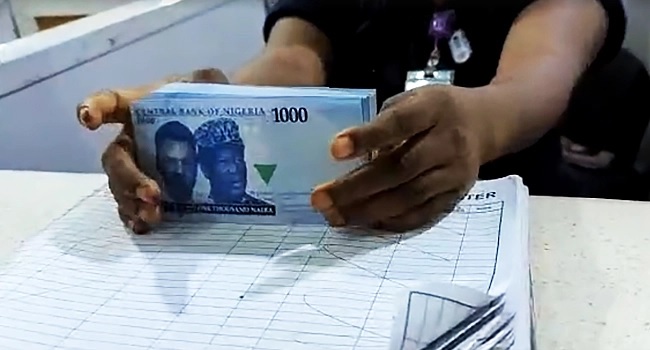
In response to the persistent challenges faced by Nigeria’s currency, the naira, the Federal Government has unveiled plans to raise $10 billion aimed at bolstering liquidity in the foreign exchange market.
This announcement comes amidst growing concerns over the currency’s freefall, with the naira plummeting to an unprecedented low of 1,850 per dollar at the parallel market on Tuesday.
President Bola Tinubu, represented by Vice President Kashim Shettima, revealed the government’s strategy at the inaugural Public Wealth Management Conference held in Abuja. The event, themed “Championing Nigeria’s Economic Prosperity,” was organized by the Ministry of Finance Incorporated.
Tekedia Mini-MBA edition 14 (June 3 – Sept 2, 2024) begins registrations; get massive discounts with early registration here.
Tekedia AI in Business Masterclass opens registrations here.
Join Tekedia Capital Syndicate and invest in Africa’s finest startups here.
In a statement, Senior Special Assistant to the President on Media & Communications, Stanley Nkwocha, elucidated on the government’s objectives, stating, “The Federal Government set a goal to raise at least $10 billion in order to increase foreign exchange liquidity, a key ingredient to stabilize the naira and grow the economy.”
Furthermore, he emphasized the administration’s commitment to doubling the GDP growth rate and expanding the GDP base over the next eight years. The President underscored the importance of transparency, accountability, and effective asset management in achieving these ambitious targets, expressing confidence that enhanced corporate governance and strategic partnerships would yield substantial returns.
President Tinubu stressed the significance of directing these returns towards critical sectors such as education, healthcare, infrastructure, and job creation, emphasizing the government’s commitment to alleviating poverty and fostering sustainable economic development.
However, despite efforts to curb exchange rate volatility, the naira’s value continued to plummet across the country. As of Wednesday, the naira depreciated further to N1,900 against the dollar in intraday trading at the parallel market, while trading at approximately N1,555.24 per dollar at the official market (NAFEM).
The nation has been grappling with a persistent forex shortage stemming from reduced oil production and foreign inflows. In June 2023, the Central Bank of Nigeria adopted a policy of floating the naira, unifying all segments of the forex market. This move has led to a substantial devaluation of the local currency.
Bureau de change operators expressed concerns over the worsening situation, with predictions that the exchange rate could spiral to an unprecedented 2,000 naira per dollar if decisive measures are not implemented promptly.
The country’s ongoing forex scarcity stems from various factors, including dwindling oil production and foreign inflows.
Critics remain skeptical about the government’s ability to fulfill its promises, citing previous instances where assurances of addressing forex concerns were not realized. Last October, the Minister of Finance and Coordinator of the economy, Wale Edun, projected an influx of $10 billion in FX inflows to resolve outstanding forex obligations, a promise that is yet to materialize.
Nevertheless, the government said it expects the proposed measures, alongside existing initiatives to enhance market transparency and facilitate foreign exchange transactions by domestic entities, to alleviate the currency crisis and stimulate economic growth.
The impacts widen
However, the impact of the FX volatility on the populace is palpable, with ordinary citizens feeling the brunt of the naira’s depreciation. For many Nigerians, especially those reliant on imported goods or foreign currency for business transactions, the weakening naira translates to higher costs of living and reduced purchasing power. Essential commodities, such as food, fuel, and medications, become more expensive, compounding the already challenging economic conditions.
Furthermore, the volatility in the foreign exchange market undermines investor confidence and hampers efforts to attract foreign direct investment (FDI) and stimulate economic growth. Businesses struggle to plan and budget effectively in an environment of uncertainty, leading to reduced investment, job losses, and stagnation in economic activities.
In summary, the currency crisis in Nigeria poses significant challenges to both the government and the populace, necessitating urgent and decisive actions to restore stability and foster sustainable economic development. This means that the government’s proposed measures to raise $10 billion and address FX concerns will be closely monitored, with hopes pinned on their potential to mitigate the adverse effects of exchange rate volatility and propel the country toward prosperity.



